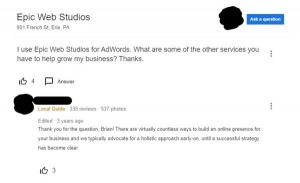Influencer marketing: cash cow, or too-good-to-be-true? Probably a bit of both, if we’re honest. Influencer marketing offers the potential to leverage a huge following, securing endorsement right at the heart of your target audience.
However, as the sector grows so do the people looking to take advantage. All brands have to be wary of so-called influencer blackmail – where influencers threaten to write negative reviews unless their (generally extortionate) demands are met.
How do you protect yourself? How can you save your brand from influencer blackmail, and the negative PR it could entail?
Read on…
1. Know the law
First things first: know the law. UK libel law exists to protect your brand in instances such as this.
If your product or brand genuinely deserves negative feedback, there’s nothing much the law can do to protect you. However, an unfair, defamatory and inaccurate review is libellous – and punishable by law.
Make it clear to any influencers you work with that you’re fully aware of the legalities. Similar to shops who warn, ‘All shoplifters will be prosecuted’, warning your influencers that you actively take legal action when you’re entitled to should act as a deterrent.
If you’re being held ransom by rogue influencers, the law is designed to protect you and legal recourse is available.
2. Agree to Terms of Engagement
It’s still early days in the world of influencer marketing, and many brands dive in without demonstrating proper business due diligence.
Agreeing your terms of engagement from the get-go has two major advantages. Firstly, you avoid misunderstandings later – making it less likely your influencer relationship will turn sour. Secondly, it gives you legal evidence should one side renege on their part of the agreement.
Before doing anything, agree with your influencer exactly what is expected from both sides. You can either get a formal contract in place, or if you’d like to keep things more casual then verbally hammer out a deal. You can still retain legal evidence if you ever need it, by recording the conversation using call tracking software (Mediahawk is a good example).
3. Keep Calm and Carry On
If you have terms in place, it’s much easier to deal with potentially negative situations as they arise. If your influencer starts making unreasonable demands or seems set to break their end of your deal, you can politely remind them of your contract.
If the influencer becomes aggressive, it’s critical that you don’t respond in kind. While it’s frustrating when one party breaks an agreement, your best way of dealing with negative, unfair reviews is not to get them in the first place. That means trying to keep the influencer on side so far as possible.
That’s not to say that you have to give in to their demands, but to say that you have to be calm and professional at all times. Don’t exacerbate the situation.
4. Be 100% Above Reproach
Hopefully we shouldn’t need to say this, but if you’re not sticking to your end of the bargain you can’t expect your influencer not to be angry. Deliver what you’ve promised, or you risk inciting the ire of the influencer-sphere, and rightfully so.
That’s another reason to get your terms of engagement in place to start with. Make sure everyone on your side knows exactly what’s been agreed, and what they’ll need to do to meet that agreement.
5. Social Monitoring is Your Friend
Surprisingly, it often takes brands a while to realise when an influencer has written a defamatory review. There’s simply no excuse to miss conversations like this.
Damage limitation means you know exactly who’s saying what about your brand and when… so learn how to use social media listening tools and embed them throughout your business. Even if you’re working to a small budget, you can use free tools like Google Alerts and Hootsuite to see what’s being said. Set them to real-time and you’ll hear the news as soon as it is news.
6. Choose Option C
So, you’ve seen a negative review… what now? Option A, ignore it and hope it goes away? Option B, get drawn into an endless online feud? Or Option C, respond promptly, politely and professionally?
Option C is definitely your best bet. Responding to the criticism can help assuage the fears of other customers, while showing that you’re engaged and truly care about your service and brand. Don’t, under any circumstances, become aggressive, resentful, critical, or get into a he-said she-said match.
7. Report Blackmail Immediately
If you feel you’re being held hostage unfairly, you can report it to the site hosting your reviews (unless the influencer is self-hosting). Influencer blackmail is unfortunately a recognised activity – but this means that hosting sites are becoming savvier about protecting brands.
TripAdvisor for Business, for example, allows you to report influencer blackmail. Remember, you’ll be particularly well protected if you have records of your agreement – yet another reason to be transparent with your terms from the get-go.
What’s your experience of influencer marketing? Any horror stories of your own?
Business & Finance Articles on Business 2 Community(64)




